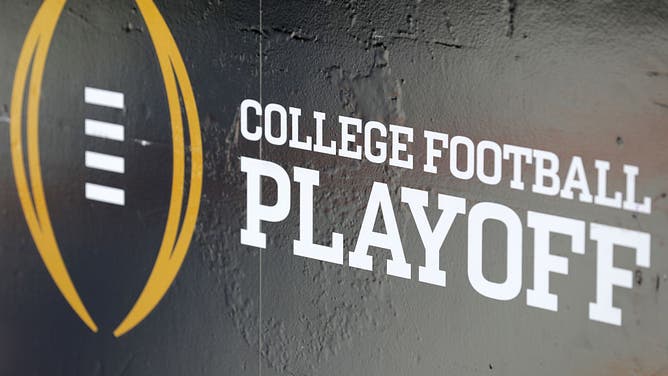SEC, Big Ten Holding The Other Conferences Over The Fire With College Football Playoff Revenue Distribution
The ongoing race to get the new 14-team college football playoff format has been filled with a number of small roadblocks, but revenue distribution is beginning to take shape.
Talks between committee members have continued over the last several weeks, with members meeting in Dallas, Indianapolis and virtual meetings this week. When it comes to flexing their muscles over other conferences regarding revenue distribution, the SEC and Big Ten are holding other conferences over the fire right now.
In an effort to procure the most money possible for the ‘Mega Conferences’, all parties have been discussing different revenue models, which have the two power conferences coming out ahead, in a big way.
According to multiple sources that are familiar with the ongoing negotiations, the SEC and Big Ten have made it clear that they want the bulk of this revenue, even if that means giving up the first-round byes in the playoff. How much money are we talking about for both the SEC and Big Ten? Well, that's where the numbers are tilted heavy towards the Power-2.
Yahoo Sports is reporting that the current talks between conference members has the ACC and Big 12 discussing the option to just concede on the financial front. In one proposed solution, the SEC and Big Ten would receive around 58 percent of the college football playoff revenue, which could come out to around $760 million. Compare this to the ACC and Big 12 receiving in the neighborhood of $440 million, and you can see how the two power conferences hold all the weight.
Now, this has certainly drawn a lot of negative feedback from conference commissioners outside the SEC and Big Ten, obviously. But this might end up being one fight they do not win, especially with the amount of star-power combined.
There were proposals in these discussions that caused pushback, with one example being the amount of automatic qualifiers each conference would receive. What started at four each for the SEC and Big Ten has gone down to two in recent talks. This road block has been characterized as a diversion by some, so that the ACC and Big 12, along with Group of Five members would concede on the revenue distribution model previously mentioned.
How all of this plays out in the coming week is crucial, with a soft deadline looming. Executive director Bill Hancock has mentioned that he wants a deal done within the next two weeks, and while the format might not get solved, the revenue part of this could come to a vote soon.

ACC Has Its Own Problems With Keeping Member Schools
While all of this is going on, a judge in Florida has set a date for the first hearing in the Florida State vs. ACC lawsuit, which will be April 9th. The ACC is looking to have a judge dismiss the case, while both sides would meet again in a North Carolina courtroom on May 22.
Why is this a big deal?
If Florida State continues down this path of exiting the conference, others could follow. This would leave the ACC in a bad situation if the Seminoles and others leave, forcing the committee to renegotiate how much the conference would get. So, this is certainly something to keep an eye on over the next few months.
As for the SEC and Big Ten holding all the power when it comes to the financial side of this deal, there's not much opposing conferences can do, besides continuing to argue for a better cut. Unfortunately for the other parties, the power-2 don't sound like they are budging when it comes to getting the money they feel is deserved.
The battle continues, but the clock is ticking.